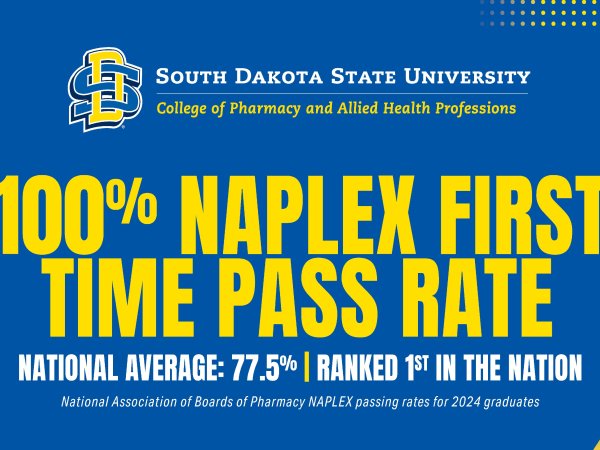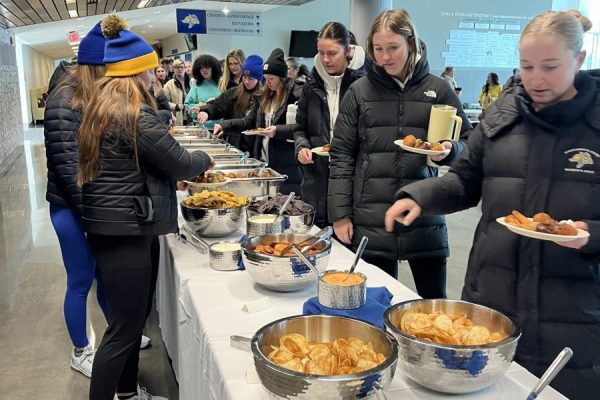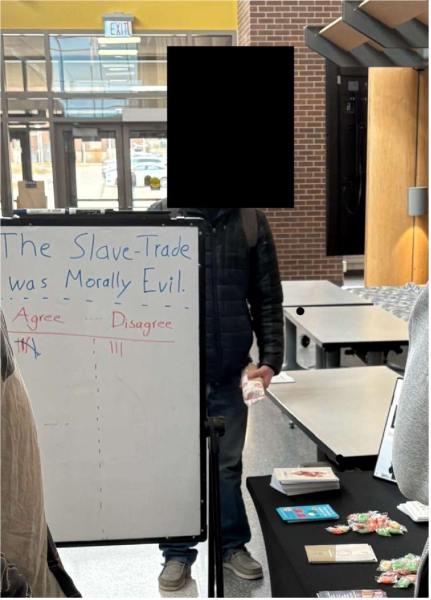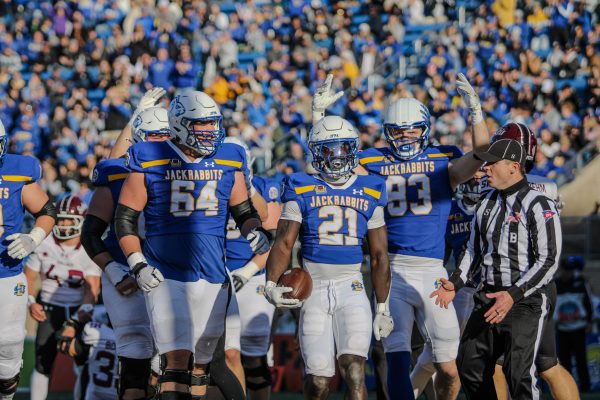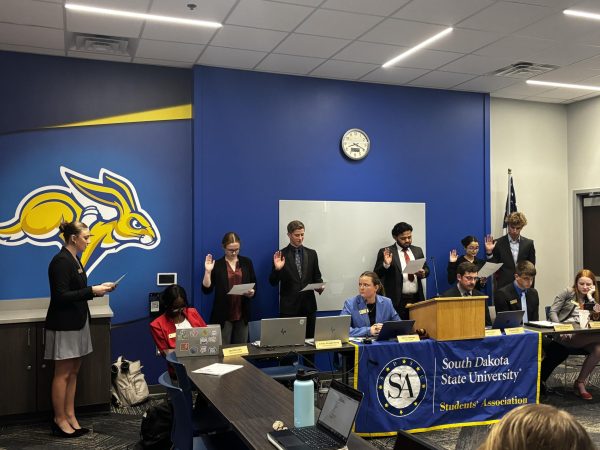If you’re really bored, think about SDSU’s many clubs
August 24, 2003
John Hult
Moving away from home for the first time can be just a little bit scary.
Most of the students who show up at their respective Residence Hall during the waning weeks of summer arrive knowing a few students from their hometown and a few acquaintances made during involvement in traveling athletics, clubs and organizations.
Luckily, The Department of Student Union and Activities (DSUA) lists nearly 150 student clubs and organizations students can participate in.
The clubs are as varied as the personalities on campus, ranging from religious clubs like Campus Crusade for Christ to fraternities and sororities to special interest clubs like the SDSU games club, TV club, cheerleading or the brock and bridle club.
All students attending orientation will have an opportunity to learn more during the involvement opportunities session, which Greek Advisor Shonda Reed suggests students take advantage of.
“That will give an overview of the different areas that students can get involved in,” Reed said.
Reed said that orientation also gives students opportunities to learn about clubs because new students can fill out cards indicating their interests and learn more at resource tables.
Every student organization is also invited to the the Campus and Community Fall Festival, which takes place outside the University Student Union (USU) on September 2.
DSUA Receptionist Joan Carey says that clubs on campus help to bridge the gap between high school and college for students who were involved in high school.
She also said that the clubs are varied and diverse enough to offer something for those who were not involved as well.
“They’ll have their leadership abilities tapped, they can network with other students,” she said.
“These clubs can have something that they’re really interested in-it just gives them a chance to learn.”
Ambitious students even have the opportunity to start their own club. Student organizations can use SDSU Motor Pool vehicles, apply for funds and reserve rooms for meetings and events.
Carey said that potential clubs need a full-time faculty or career service staff advisor, seven students to be the club’s charter members and a constitution with bylaws.
“That’s probably the biggest step,” Carey said.
“That will take time to put together.”
Not to fear, however.
The DSUA office in the basement of the USU has a handbook for starting up an organization that includes forms, guidelines for the constitution and bylaws and tips for fund-raising and budgeting.





